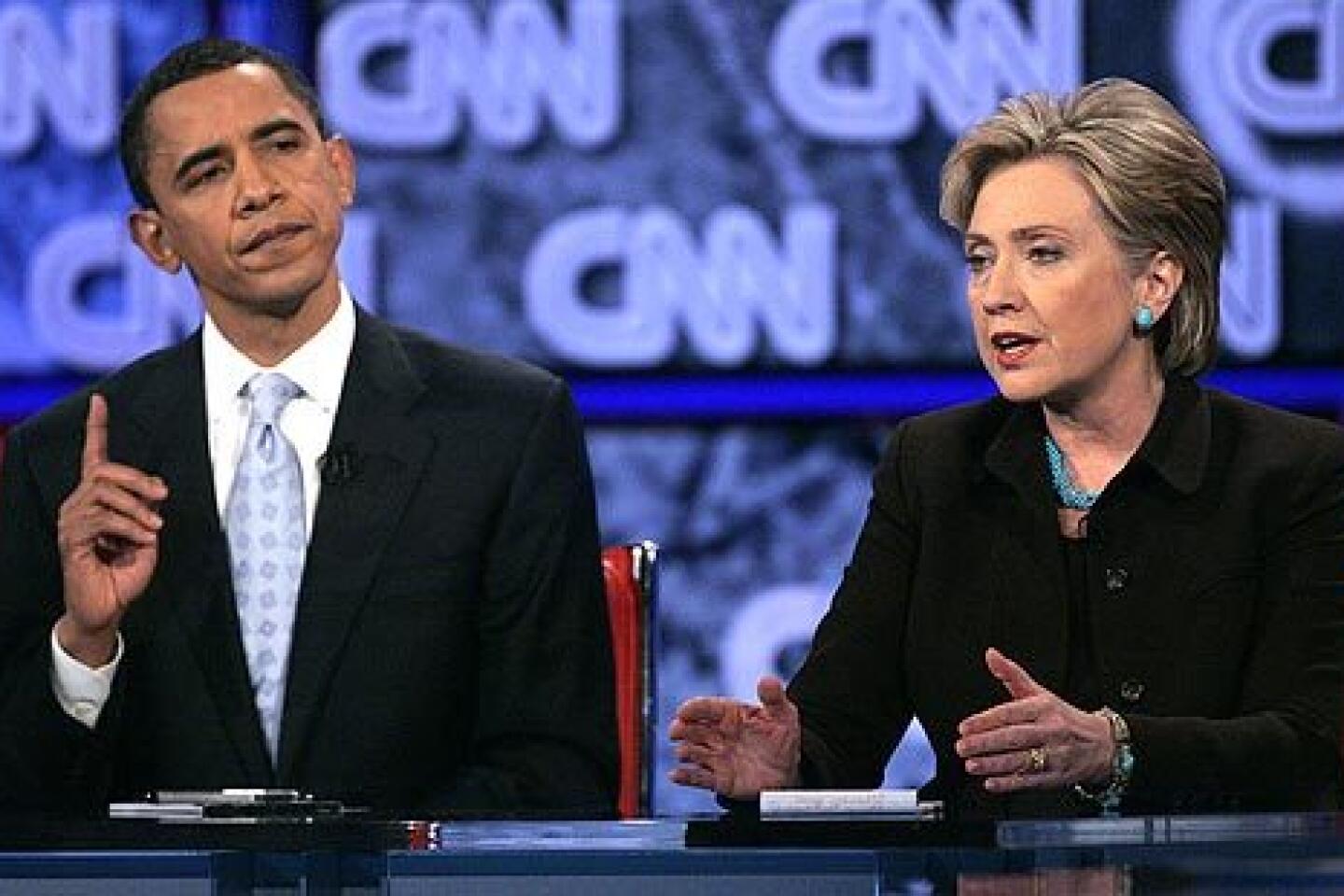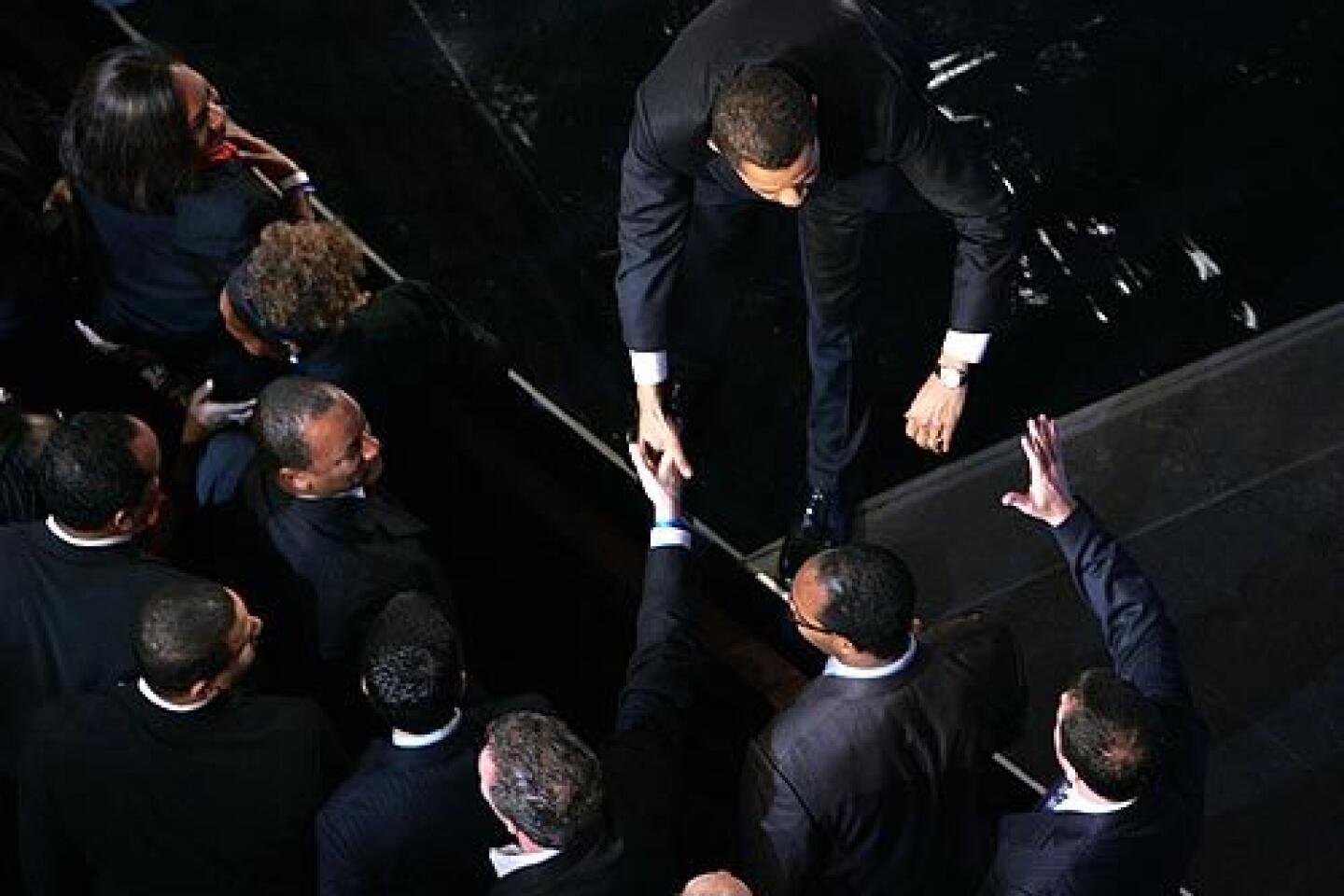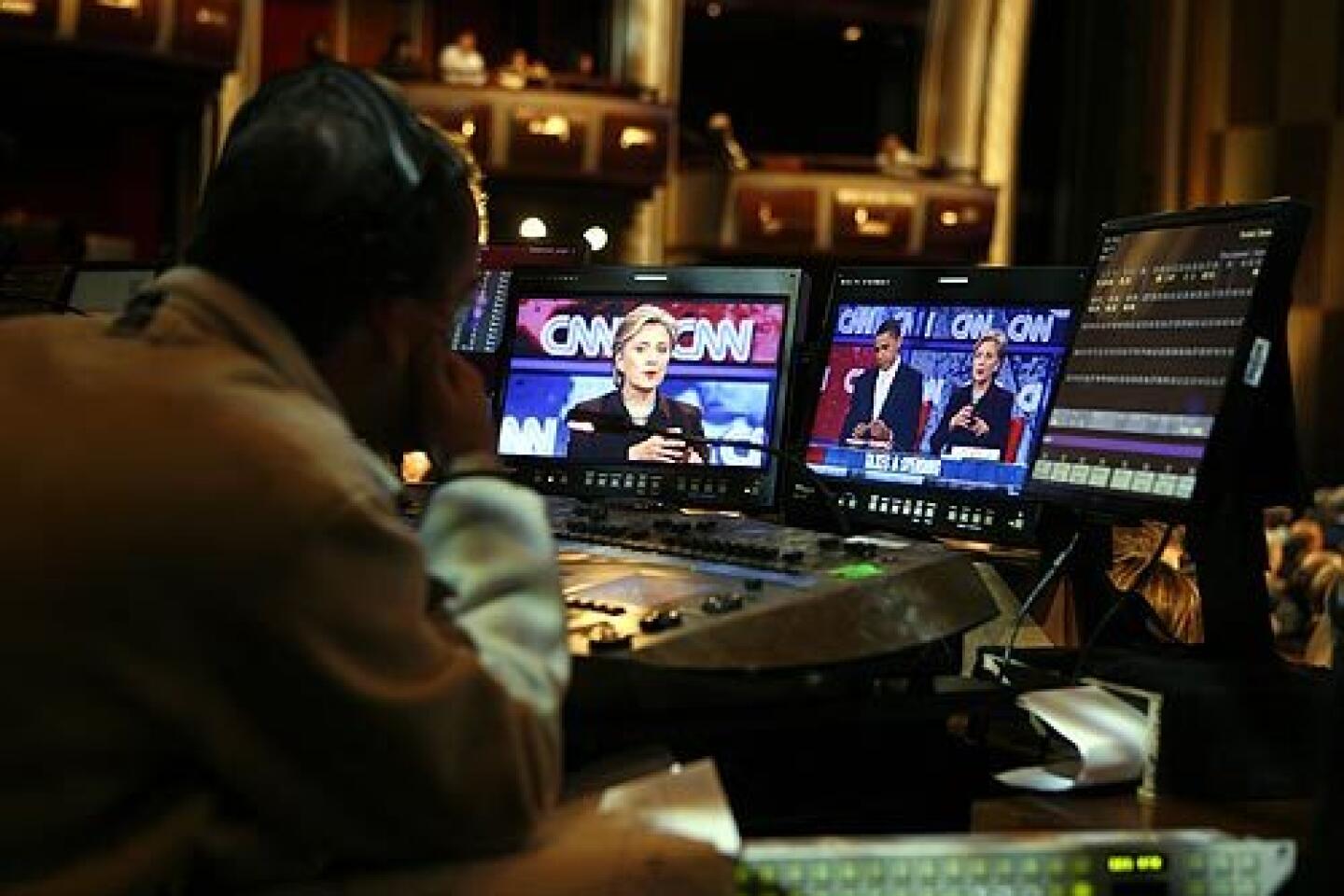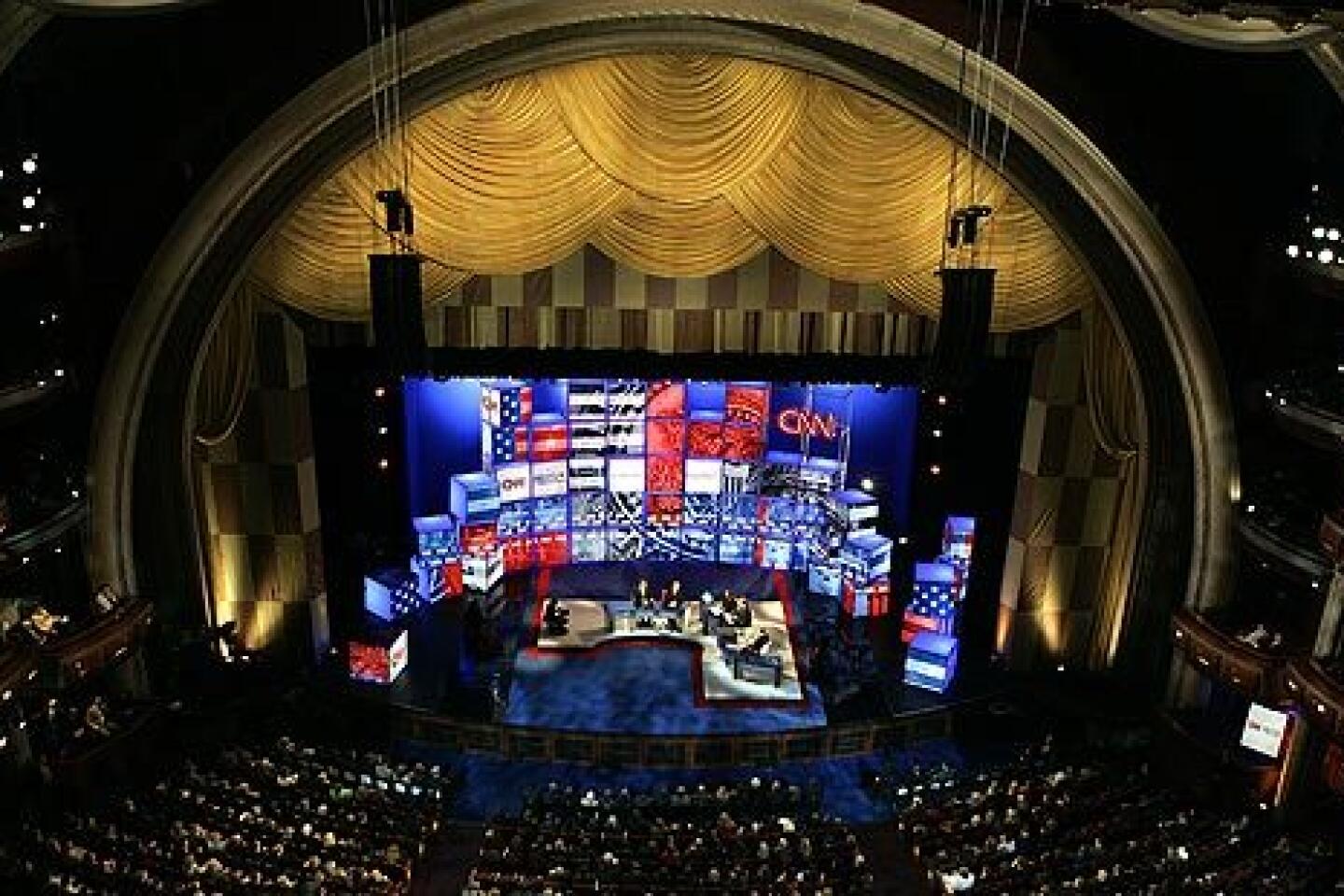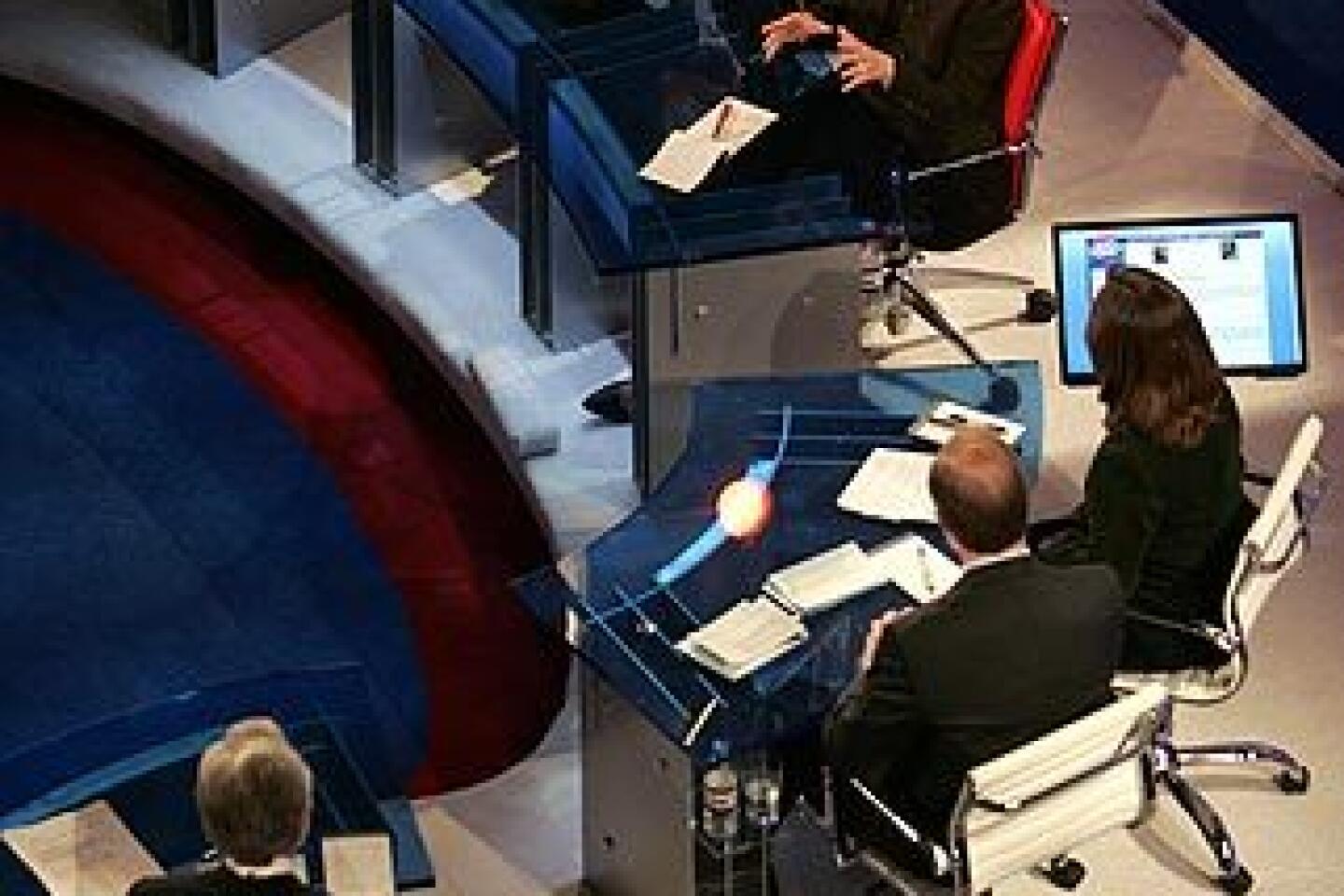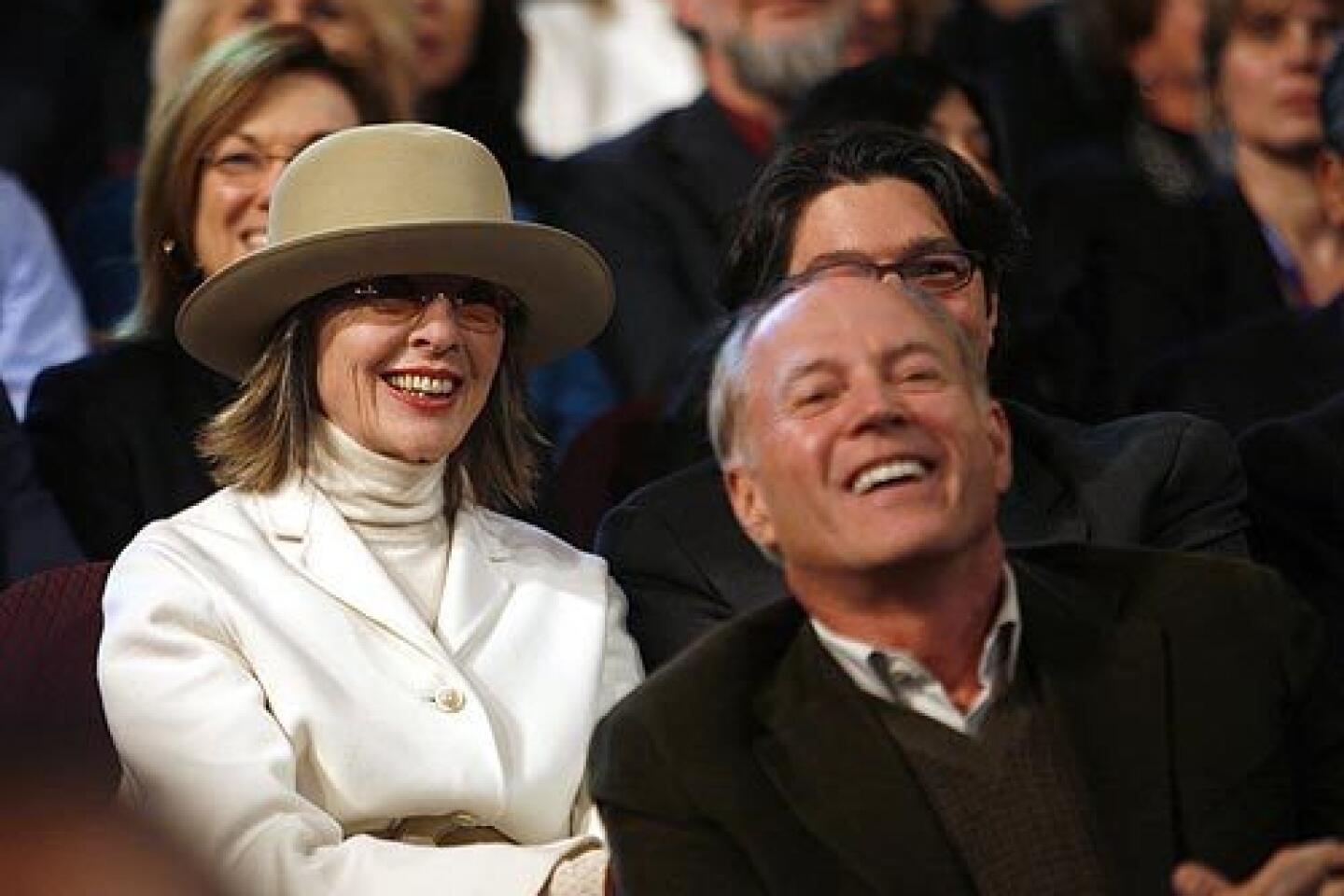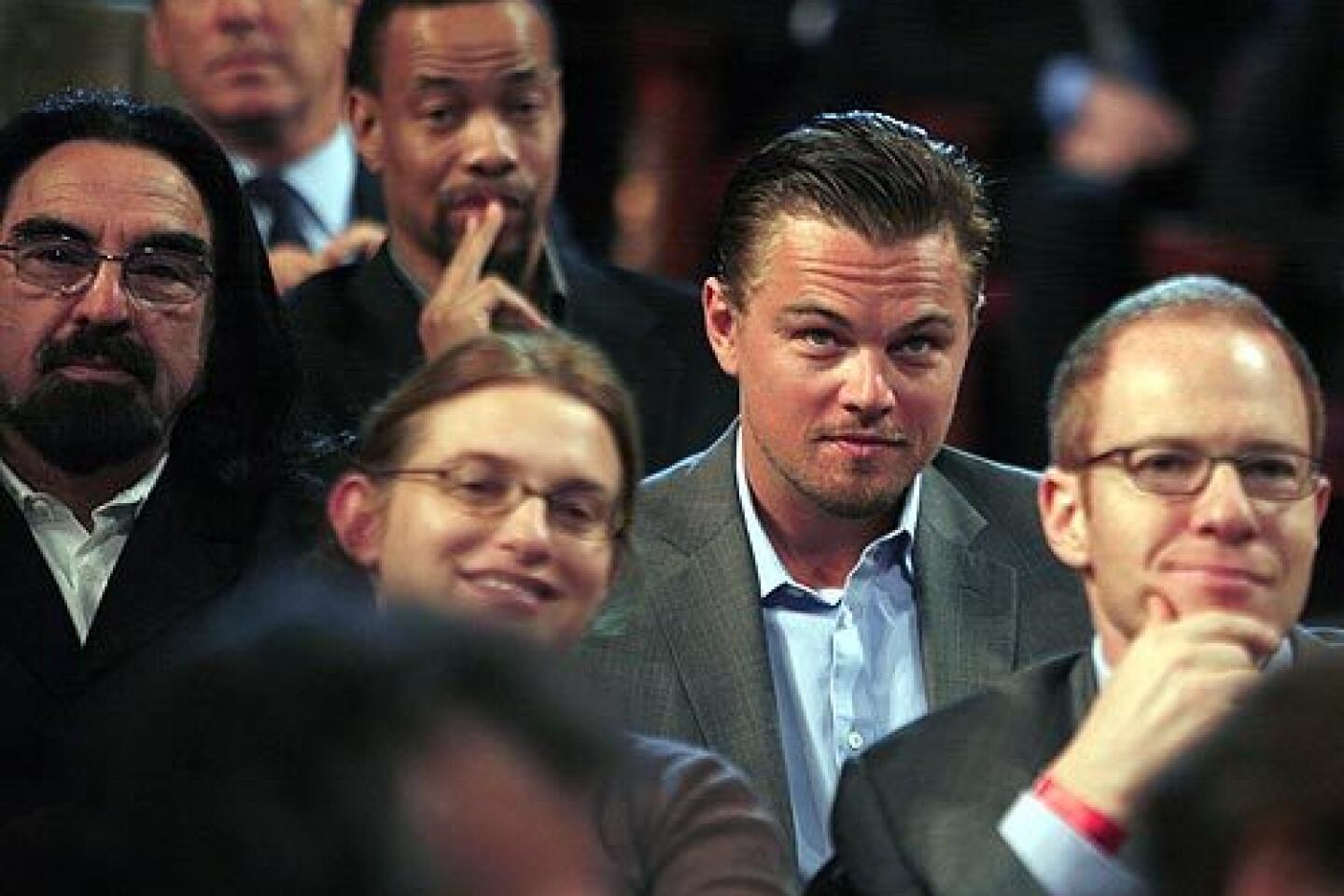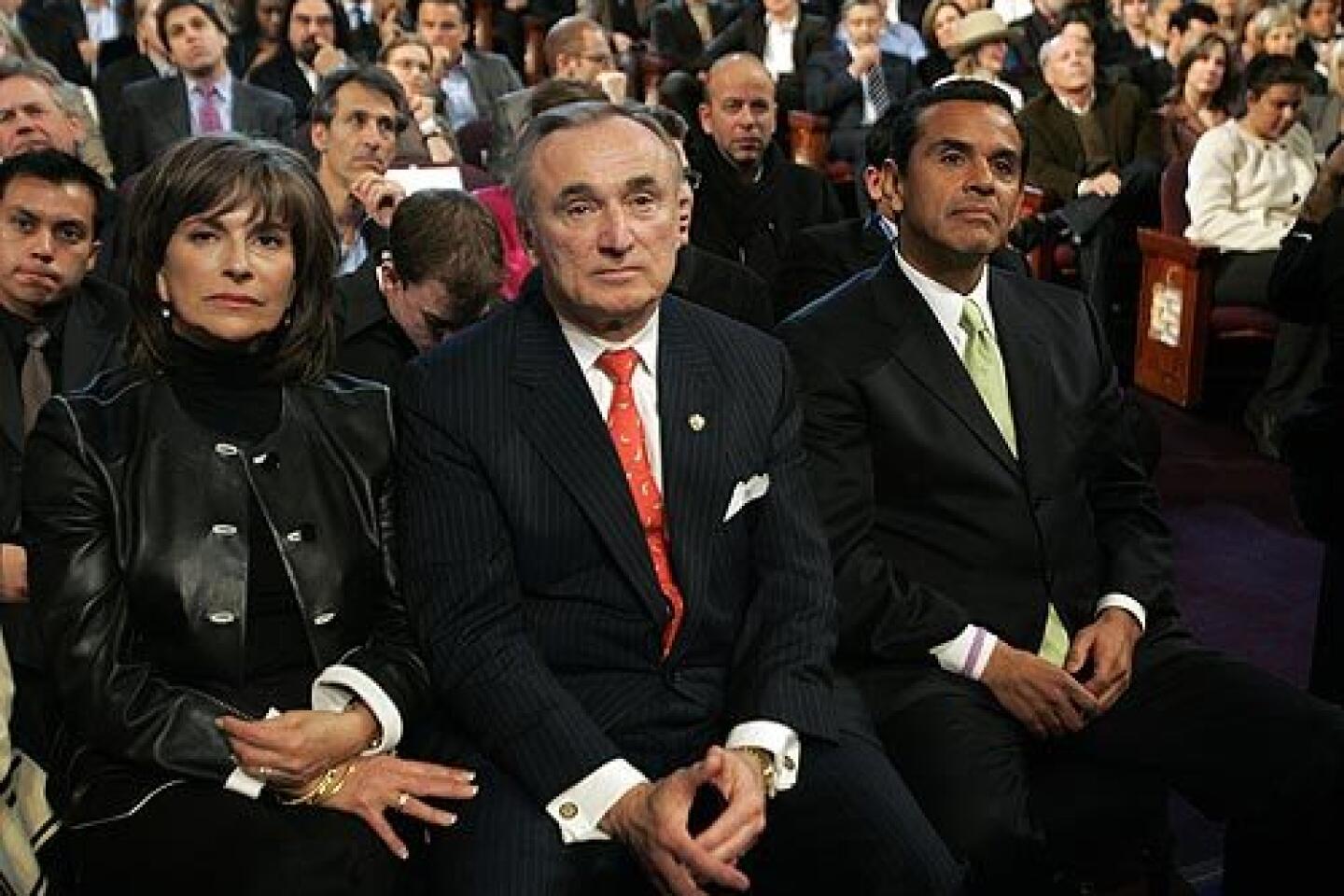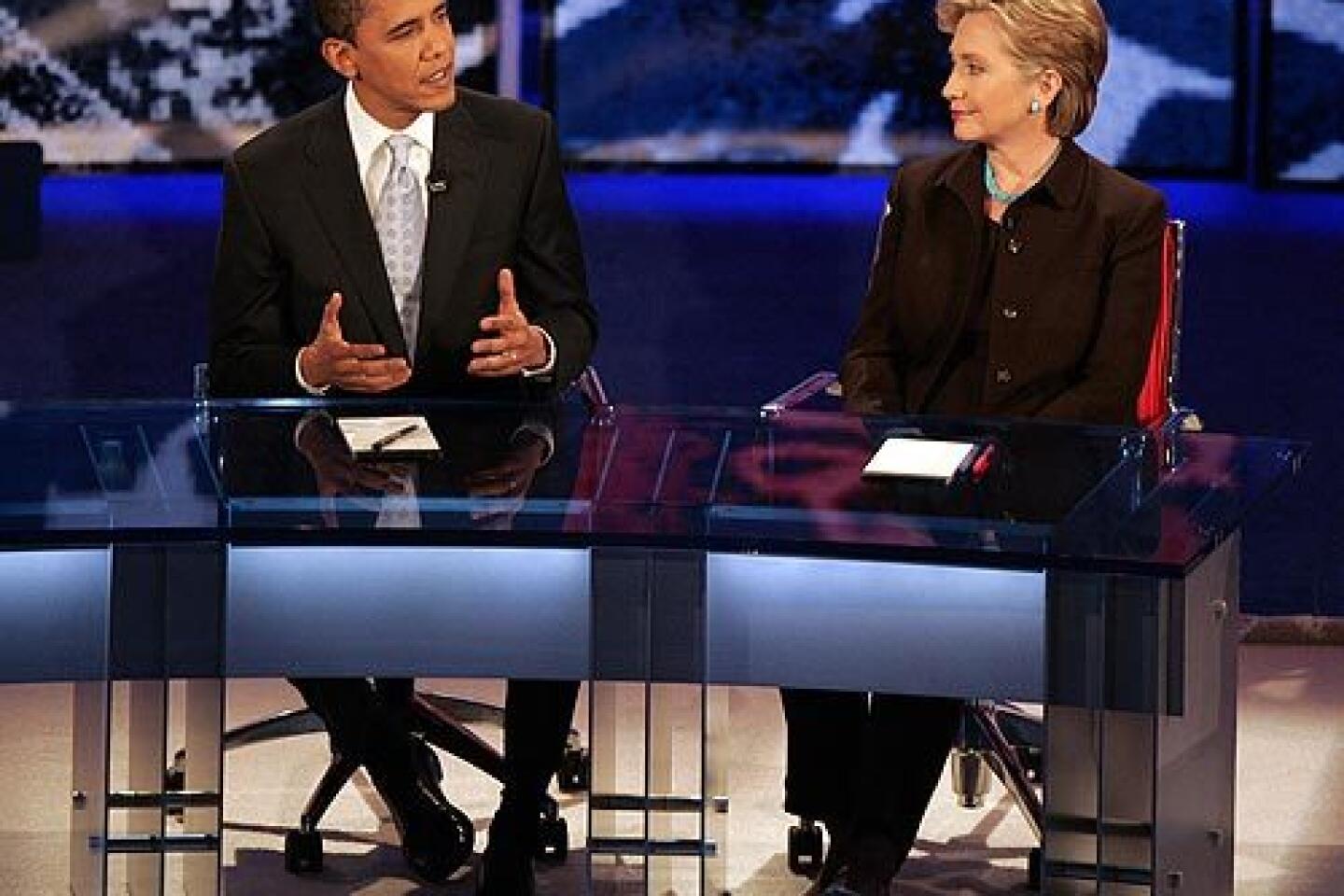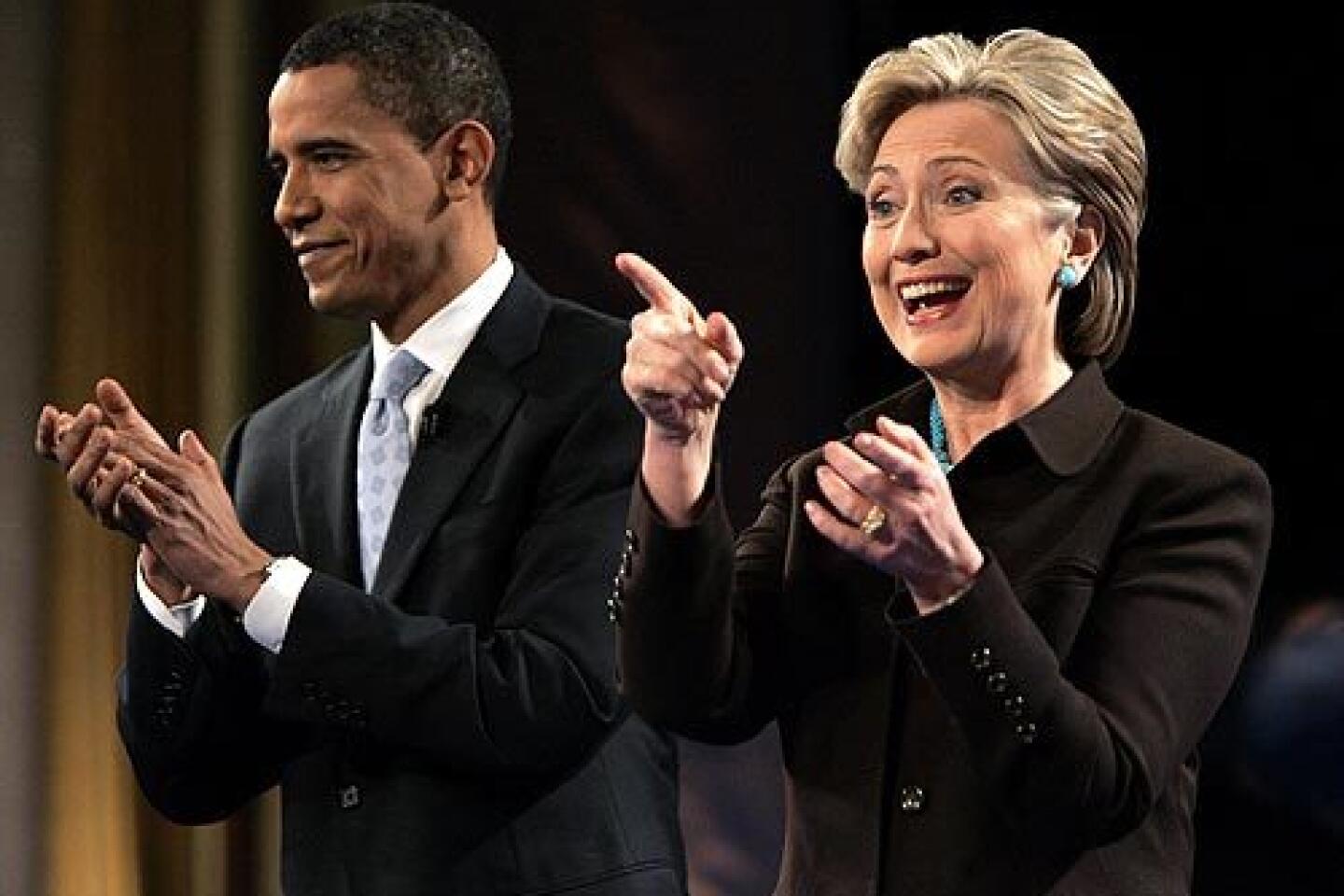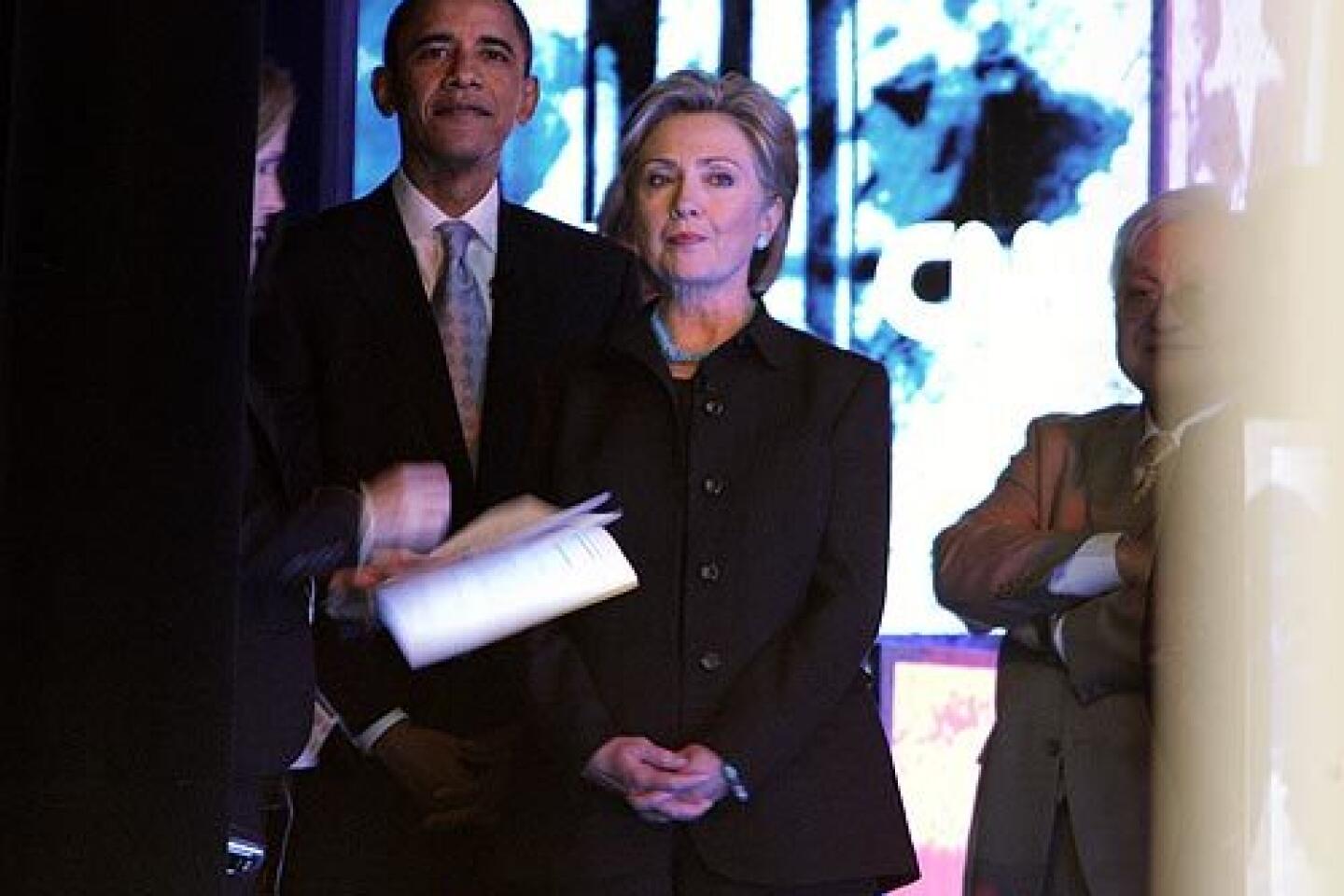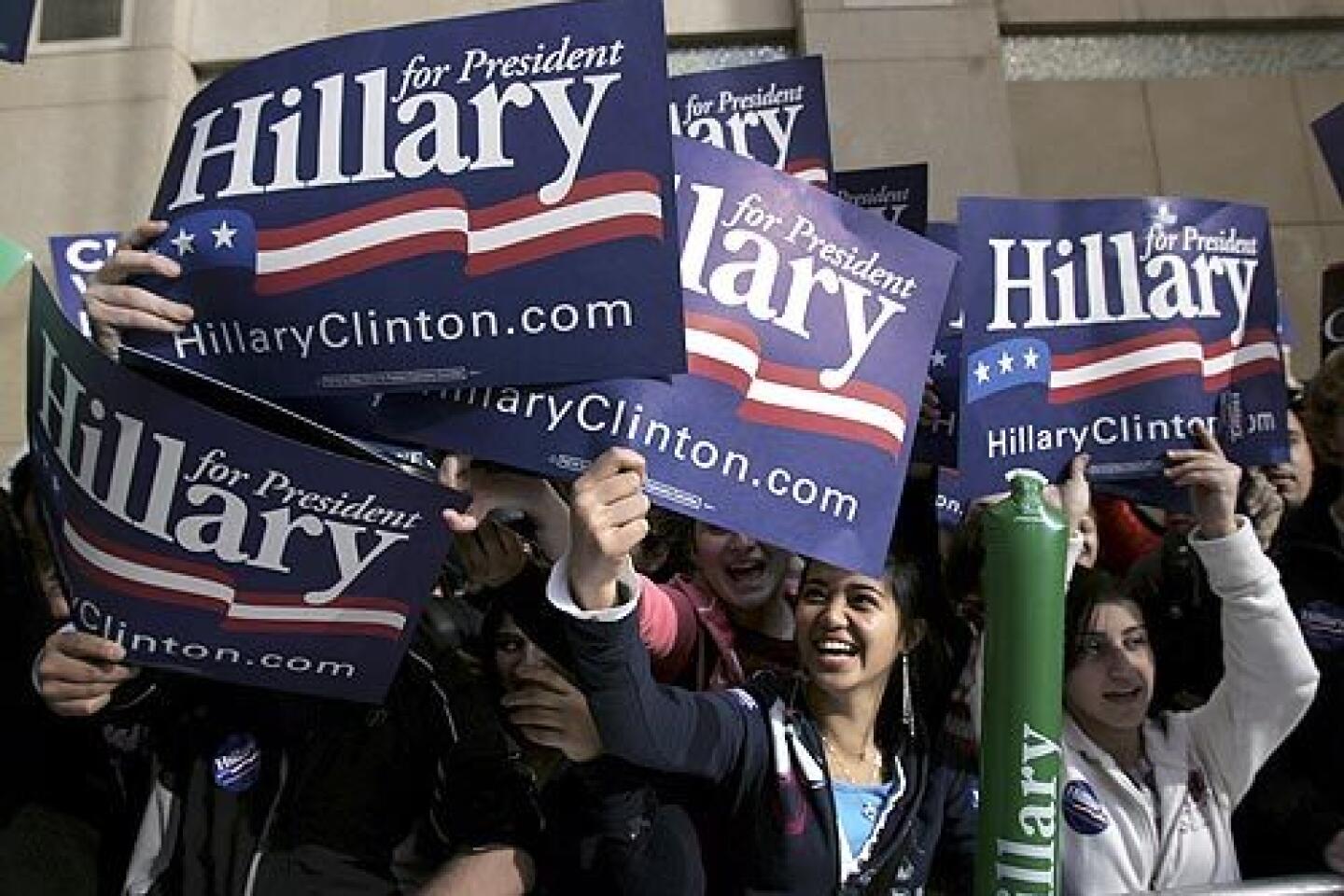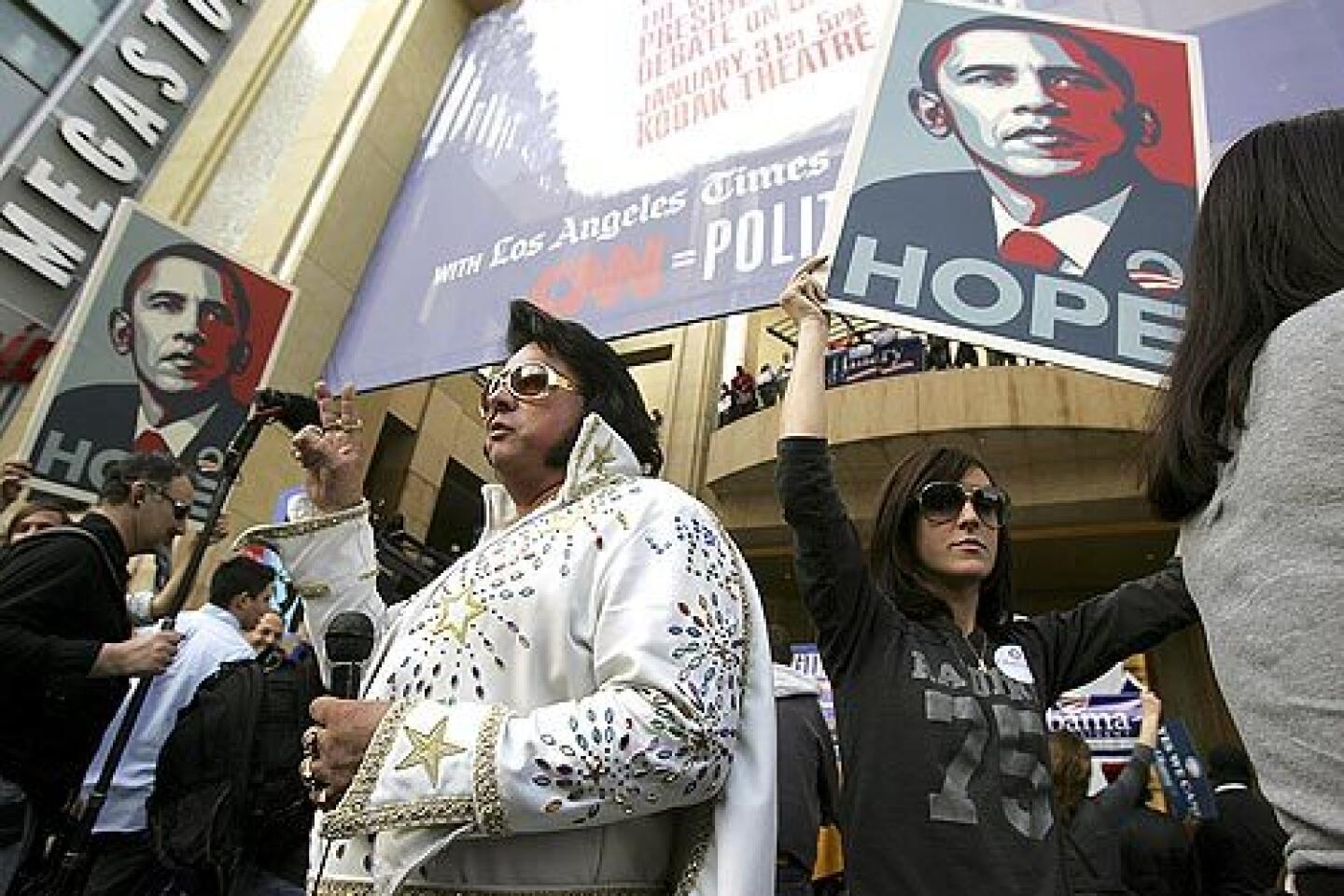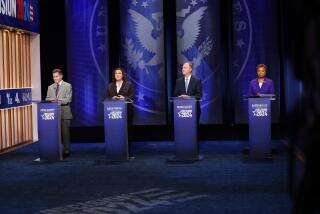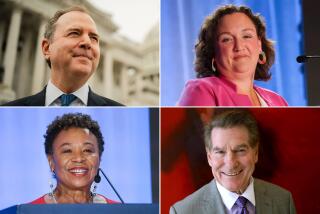Clinton, Obama gently debate Iraq in Hollywood
The Iraq war reemerged Thursday as a dividing line between the two major Democrats remaining in the presidential contest, as Barack Obama used a Los Angeles debate to argue he has the judgment to lead the nation out of war and Hillary Rodham Clinton asserted that she has the gravitas to do the same.
The debate, sponsored by The Times, CNN and Politico and held at the Kodak Theatre in Hollywood, was the first one-on-one meeting between Clinton and Obama. It was also the last before Democrats in 22 states, including California, vote Tuesday.
Unlike their most recent session in South Carolina -- replete with mudslinging and insults -- Thursday’s debate played out as if they were two talk show guests trading jokes as they worked around the edges of a number of domestic policies.
The gravest distinction came on the war, which loomed large as an issue as the presidential race began but has gradually diminished in the Democratic contests. With the war again the focus, the race reverted to the campaign’s purest distillation: Clinton’s experience against Obama’s judgment.
As she has before, Clinton refused to apologize for voting in the fall of 2002 to give President Bush the authority to use military force against Saddam Hussein. At the time, Obama came out strongly against the war, so it looms as one of the key distinctions between the two. Their Senate votes on war-related funding since Obama was elected in 2004 have been similar.
“I think I made a reasoned judgment,” Clinton said in defending the vote. Then she tried to pin the blame for the war on Bush: “Unfortunately, the person who actually got to execute the policy did not.”
Twice Clinton insisted that it was time to focus on what the country would do “going forward” -- in effect, leaving behind the discussion over the war vote. She cited Sen. John McCain’s criticism of Democratic desires to leave Iraq as proof that she meant to pull American troops out.
“It will be important, however, that our nominee be able to present both a reasoned argument against continuing our presence in Iraq and the necessary credentials and gravitas for commander-in-chief,” she said. “That has to cross that threshold in the mind of every American voter.”
Obama, however, insisted that Clinton’s authorization vote defined who would run the strongest race for the White House in November.
“I will be the Democrat who will be most effective in going up against a John McCain -- or any other Republican, because they all want basically a continuation of George Bush’s policies -- because I will offer a clear contrast as somebody who never supported this war, thought it was a bad idea,” Obama declared.
He directly took up Clinton’s implicit criticism of his “gravitas.”
“Sen. Clinton mentioned the issue of gravitas and judgment,” he said. “I think it is much easier for us to have the argument when we have a nominee who says, ‘I always thought this was a bad idea, this was a bad strategy.’ ”
Later, he said of the upcoming fight with the eventual Republican nominee, “That is an argument that I think we are going to have an easier time making if they can’t turn around and say, ‘But hold on a second, you supported this.’ ”
Despite that disagreement, and a few others on smaller policy differences, the two candidates treated each other largely with deference. Unlike Wednesday’s Republican debate at the Reagan Library, where John McCain and Mitt Romney glared through clenched-jaw disagreements and impugned one another’s integrity, the New York and Illinois senators sat side by side and behaved as though a cross word had never come between them.
There were many uses of the word “we” -- as though the candidates were already presenting a united front against the Republicans. Each took pains to criticize McCain, President Bush and Republicans in general as much as the other.
From the opening words, they seemed intent on dispelling any lingering shadows from the bitter South Carolina contest.
“I was friends with Hillary Clinton before we started this campaign. I will be friends with Hillary Clinton after this campaign is over,” Obama said.
Clinton returned the sentiment. “The differences between Barack and I pale in comparison to the differences that we have with the Republicans,” she said, before mildly mentioning a few of the Democratic differences.
And she alluded to the jointly historic nature of their effort. Wednesday’s withdrawal from the race of former North Carolina Sen. John Edwards meant that either a woman or an African American was in line to be the next Democratic presidential nominee.
“Just by looking at us, you can tell, we are not more of the same,” Clinton said to laughter from Obama and the audience. “We will change our country.”
The largely cordial demeanor of the debate belied the drama of the occasion, which was somehow appropriate to an event held in the same facility that hosts the annual Academy Awards ceremony. Outside the theater, thousands of supporters vied for bragging rights, chanting back and forth and revving each other up along Hollywood Boulevard. Inside, political heavyweights and Hollywood stars sat side by side, part of a crowd noisier than most at presidential debates.
While emphasizing their outsized differences with the GOP, the two candidates continued to define themselves -- and one another. Some disputes -- as over whether illegal immigrants should receive driver’s licenses -- were replays of dust-ups from earlier in the campaign.
In an October debate, Clinton had stumbled over whether she supported New York Gov. Eliot Spitzer’s plan -- later shelved -- to give special licenses to those in the country illegally. In a subsequent debate, Obama, too, had trouble with the subject, although ultimately they clarified that she opposes licenses and he backs them.
“It’s a hard political issue, let’s be honest . . . but I think it is the right thing to do,” Obama said. He added later: “We have to stand up for these issues when it’s tough.”
Clinton insisted that she was passionate about solving the country’s illegal immigration problem but would do so with “a practical, realistic approach.” That, she concluded, did not include giving a driver’s license to someone in the country illegally.
The discussion flowed from a question forwarded to the debate panel by a Minnesota woman who said she was waiting for some “acknowledgment” from the candidates about the negative impact on African Americans by “the flood of immigrant labor.”
The question touched on tensions between the two communities that have dogged Obama as he seeks to cut Clinton’s massive lead among Latino voters, who are plentiful in many Super Tuesday states, including California. He essentially rebuked the questioner.
“Before the latest round of immigrants showed up, you had huge unemployment rates among African American youth,” Obama said, recounting his years as a community organizer in Chicago.
He said that blaming immigrants for inner-city unemployment was “a case of scapegoating that I do not believe in.”
Clinton seemed to evince more sympathy for the questioner, saying that because of employers who “exploit undocumented workers and drive down wages, there are job losses.”
The solution, she said, was the sort of comprehensive immigration reform that she has backed.
The two deflected questions about the costs of their multi-billion dollar healthcare proposals, saying they would be paid for with a combination of efficiencies and revenue from letting lapse the Bush tax cuts on high-income Americans. Pressed about the political implications by moderator Wolf Blitzer of CNN, Obama said, “I’m not bashful about it.”
Then, looking at an audience that included entertainers Stevie Wonder, Diane Keaton and Rob Reiner among others, he joked about those who would be affected: “I suspect a lot of this crowd. It looks like a pretty well-dressed crowd. You guys . . . potentially pay a little more.”
Clinton, at her turn, noted that allowing the tax cuts to lapse would bring rates to where they were in her husband’s administration. “And my memory is,” she said with a nod to its economic successes, “people did really well during that time period.”
Blitzer, booed earlier in the night for asking Clinton if she was “naive” to vote for the war, got back in the crowd’s good graces as he closed the debate by asking the candidates if they would team up in November. A joint ticket has become the fond wish of many Democrats who wish to marry the candidates’ attributes.
After declaring the question “premature” -- with a smile -- Obama said that Clinton would be on anyone’s short list for vice president. Clinton, with a broad grin, added: “I have to agree with everything Barack just said.”
More to Read
Start your day right
Sign up for Essential California for news, features and recommendations from the L.A. Times and beyond in your inbox six days a week.
You may occasionally receive promotional content from the Los Angeles Times.
